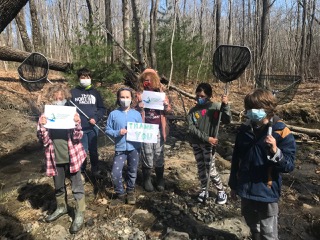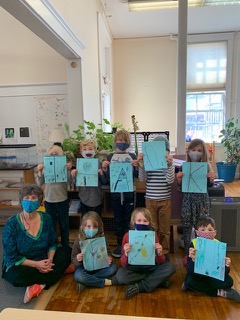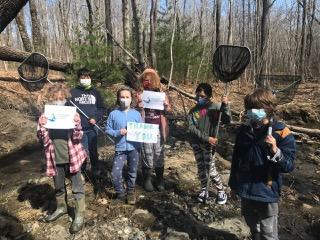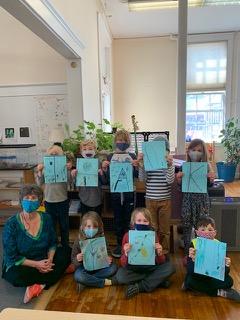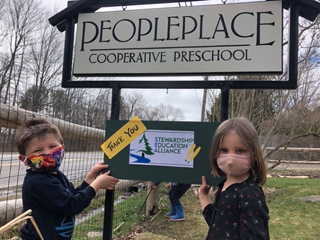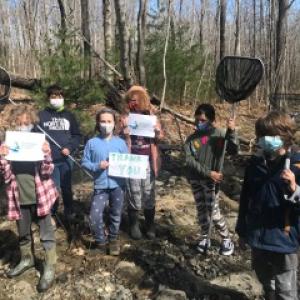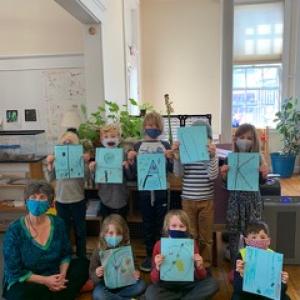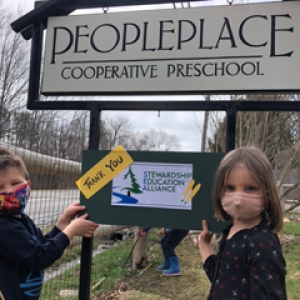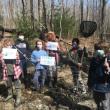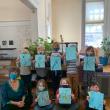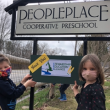Four local teachers to get feet wet with S.E.A. grants
CAMDEN — Four area school teachers will be getting their feet wet this summer as a result of educational grants awarded by the Stewardship Education Alliance (S.E.A.), a year-old nonprofit working to increase community awareness of and efforts toward becoming better stewards of the Midcoast’s water resources and fragile watersheds.
Kisha Marsh and Deb McSweyne, both teachers at Camden Rockport Middle School; Germaine Koomen, a teacher at Children’s House Montessori School in Camden; and Sessa Salas, a teacher at Camden’s PeoplePlace school, have been awarded study grants for courses in aquaponics being taught this July at Herring Gut Learning Center in Port Clyde.
Aquaponics is the cultivation of plants and aquatic animals in a recirculating environment. A combination of aquaculture and hydroponics, aquaponics pairs fish and plants in an integrated system. Fish wastes provide a food source for growing plants, and plants provide a natural filter for water to support fish.
“Our goal as teachers is being able to take what we’re taught at Herring Gut and bring those hands-on experiences into the classroom,” says Koomen, in a SEA news release. “People learn by doing, so students can better understand life in the water if given opportunities to connect with nature than they would through any textbook experience.”
“My role as a teacher is to facilitate a joy of learning and the desire to be lifelong learners,” she adds. “The S.E.A. grant provides a means to do so.”
In addition to McSweyne, Marsh, Koomen and Salas, four other area teachers received S.E.A. funding.
Hope Elementary School science teacher Colin Amundsen was awarded a grant to create a nature trail and outdoor classroom on a one-acre piece of gifted property adjacent to the school campus. Having an outdoor space, Amundsen says, will allow students to better explore their local environment and have a richer learning experience.
“Experiences in the field are unparalleled in meaning and, honestly, more fun than solely in a four-walled classroom,” says the former field scientist.
One component of the nature trail will be planting native trees that are a benefit to local watersheds. Native plant species with deep root systems filter groundwater, as well as minimize flooding in flood-prone locations. Planned completion of the project is slated for mid-June.
Science teacher Dave Munson, with Appleton Village School, was awarded funding for an extension of the AVS Little Buddies program. The Little Buddies program is part of the Fish Friends Atlantic salmon-rearing program. Middle school students prepare and teach lessons, produce student-created educational materials, and create educational games and activities for third grade students with a focus on Atlantic salmon and their role in local watersheds, as well as on the importance of preserving and improving habitat for salmon and other native species.
“With the help of S.E.A., we’re able to expand our programs and reach more students with the message that maintaining the health of our watersheds is critical to the overall health of Maine’s diverse ecosystems,” Munson says.
“The S.E.A. funds will provide tools and materials that will contribute to watershed learning well beyond this salmon-rearing season, as well as provide new experiences and expertise that will help improve how we teach and promote environmental stewardship at AVS.”
Hope’s SweetTree Arts and Sweetland School was awarded funding for child and adult safety vests and headlamps to be used by the school’s volunteer scientists during Maine’s Big Night amphibian migration monitoring activities. The project was created as a direct result of observing the mortality impacts roads are having on amphibian populations, and seeks to identify important migration crossing sites and reduce mortality of amphibians.
“In a world with increasingly fragmented habitat, decreasing amphibian populations and changing climate, finding these migrationroutes will only become more important every year,” says Sweetland School director Lindsay Pinchback. “Along with our learners at Sweetland School taking part, we want to be a gear host for other volunteers, allowing for a broader reach beyond our 33 students.”
Rockport’s Riley School was awarded S.E.A. funding for water monitoring equipment to be used in the school’s hands-on science program, which emphasizes collecting and interpreting scientific data.
“At Riley School we’ve always encouraged children to have a voice in their education, and what better way to give them a voice than to have them be citizen scientists,” says the Riley School’s Alicia Calder.
Using the equipment, which includes water monitoring kits, refractometers to measure salinity, and various filter equipment, students will learn valuable scientific skills throughout the year by measuring the water quality in the school’s campus pond and stream, as well as measuring water quality and sampling for microplastics in Glenn Cove.
“It’s our hope that as the children participate in these citizen science activities they’ll feel empowered to make a difference in their communities,” says Calder.
With support of the Stewardship Education Alliance (S.E.A.), students, teachers and communities are benefitting from grants for special projects, activities and professional development. The 501 (c)(3) non-profit has been supporting public and private school educators and after-school programs in Camden and Rockport since 2020, and in January expanded its support to also include public and independent schools in Appleton, Hope and Lincolnville.
Planned S.E.A. events in upcoming months include underwater exploration of Camden Harbor in April with students from Watershed School, S.E.A. Fair and Poetry on Windows (POW!) in late May and June, the unveiling of a new mobile marine tank.
Event Date
Address
United States

